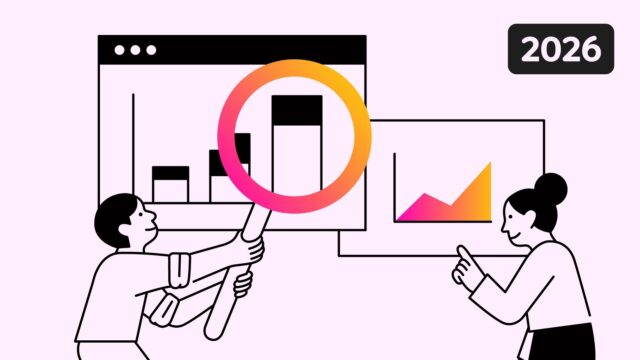
Can video games be educational? Many misconceptions surround the use of video games; however, video games can have positive effects on students’ academic performance. Learn more about the educational advantages of incorporating video games in the classroom and explore how to use video games to increase motivation, collaboration, and academic performance.
5 Benefits of Video Games in Education
1. They foster cooperation.
When people play video games, they’re either communicating online or playing side by side. One 2017 study found that multiplayer games could increase cooperation.
Sixty middle school students who had no previous video game playing experience were broken up into three groups: no gameplay, cooperative gameplay, and competitive gameplay. Students in the game playing groups were taught how to play a game. They practiced for two hours and were then observed playing with or against another middle schooler from the study. The results were taken after 20 trials and showed that the students who played cooperatively scored higher than the students who played competitively or didn’t play at all. Researchers concluded that video games could improve teamwork skills when played cooperatively (Badatala et al., 2016).
How does this relate to academic performance? Students engage in group learning, whether it be through project-based learning or collaboration technologies. Thus, teamwork is key in classroom learning. Video games offer an engaging, effective medium for teaching collaboration skills.
2. They have cognitive benefits.
Additional research suggests that video games have some cognitive benefits. In a study by Bavelier et al., fMRI—Functional magnetic resonance imaging, which measures brain activity by detecting changes associated with blood flow— was used to find that gamers can filter out irrelevant visual information. According to the study, non-gamers use their frontal-parietal network more than gamers, while gamers tend to, “allocate attentional resources more automatically, possibly allowing more efficient early filtering of irrelevant information” (Bavelier et al., 2012). The ability to filter out irrelevant information helps students in the classroom. Take researching information for a paper, for example. Students need to be able select relevant information from texts to use in their writing.
An article by James Paul Gee also supports the cognitive benefits of video games. In his work, he notes that video games improve one’s ability to follow directions and solve problems. Specifically, Gee states that, “good video games incorporate good learning principles . . . supported by current research in cognitive science” (2005).
After playing some video games himself and observing others, Gee found that people who play these games often want to improve their gaming skills. But to do so, they must follow directions, practice, and work on overcoming their weaknesses. School presents a similar challenge. Students must follow instructions and practice academic skills to achieve academic goals. Similarly, the tier systems of most video games require players to achieve one level to get to the next. As players progress, they often solve problems—and according to Gee, this imitates the space of a classroom, where you develop hypotheses and creative solutions to problems.
3. They can increase academic motivation.
Another study examined how video games affect student motivation. Researchers observed 1,274 first and second graders in Chile over three months, during which the students played various educational games (Rosas et al., 2003). By the end of the study, teachers reported increased student motivation and improved technological skills.
4. They improve your educational mindset.
A study conducted by researchers at New York University’s Steinhardt School and the City University of New York found that students who played a math video game had a mindset that was highly conducive to learning. The researchers also found that those playing collaboratively displayed an increased motivation to learn.
Additionally, the study found that educational video games reinforce students’ desire for mastering a specific subject (Plass et al., 2013). They encourage students to re-engage with material and pursue additional learning beyond the task at hand. Students who played the game were especially goal-oriented and engaged in more problem-solving—skills that translate directly to success in the classroom.
5. They can positively affect cognitive and social health.
A study conducted by researchers at Columbia University’s Mailman School of Public Health found that there could be a definite link between video games and children’s mental, cognitive, and social health.
Researchers noted that children who played video games almost every day had increased odds by around 1.75 of high intellectual functioning and by around 1.88 of overall school competence (Kovess-Masfety et al., 2016). The study also found that children who play video games seem to have fewer relationship issues with their peers.
The Positive Effects of Video Games in Education
More research exists that shows the positive effects of video games in education. Alberto Posso, a professor at the Royal Melbourne Institute of Technology in Australia, conducted a study that examined more than 12,000 15-year-olds in math and science. He found that students who frequently played video games scored around 17 points higher in the sciences and 15 points higher in math.
After observations, Posso concluded that many video games incorporate (and therefore develop) analytical and puzzle-solving skills, some of which involve the same cognitive processes that you use in math and science. He encourages teachers to “incorporat[e] favorite video games into teaching—so long as they’re not violent ones” (Posso, 2016).
Video games can be a great educational tool. Educational video games can keep students engaged and positively effect students’ academic performance. Consider integrating gaming in the classroom, when appropriate, to help your students develop interpersonal, cognitive, and problem-solving skills.
References
Badatala, A., Leddo, J., Islam, A., Patel, K., & Surapaneni, P. (2016). The effects of playing cooperative and competitive video games on teamwork and team performance. International Journal of Humanities and Social Science Research, 2(12), 24–28. https://www.socialsciencejournal.in/download/226/2-11-26-399.pdf
Bavelier, D., Achtman, R., Mani, M., & Föcker, J. (2012). Neural bases of selective attention in action video game players. Vision Research, 61, 132–143. https://doi.org/10.1016/j.visres.2011.08.007
Gee, J. P. (2005). Good video games and good learning - ProQuest. Phi Kappa Phi Forum, Baton Rouge Vol. 85(Iss. 2), 33–35. https://www.proquest.com/docview/235184729?sourcetype=Scholarly%20Journals
Kovess-Masfety, V., Keyes, K., Hamilton, A., Hanson, G., Bitfoi, A., Golitz, D., Koç, C., Kuijpers, R., Lesinskiene, S., Mihova, Z., Otten, R., Fermanian, C., & Pez, O. (2016). Is time spent playing video games associated with mental health, cognitive and social skills in young children? Social Psychiatry and Psychiatric Epidemiology, 51(3), 349–357. https://doi.org/10.1007/s00127-016-1179-6
Plass, J. L., O’Keefe, P. A., Homer, B. D., Case, J., Hayward, E. O., Stein, M., & Perlin, K. (2013). The impact of individual, competitive, and collaborative mathematics game play on learning, performance, and motivation. Journal of Educational Psychology, 105(4), 1050–1066. https://doi.org/10.1037/a0032688
Posso, A. (2016). Internet usage and educational outcomes among 15-Year old Australian students. International Journal of Communication, 10, 26. https://ijoc.org/index.php/ijoc/article/view/5586/1742
Rosas, R., Nussbaum, M., Cumsille, P., Marianov, V., Correa, M., Flores, P., Grau, V., Lagos, F., López, X., López, V., Rodriguez, P., & Salinas, M. (2003). Beyond Nintendo: design and assessment of educational video games for first and second grade students. Computers & Education, 40(1), 71–94. https://doi.org/10.1016/s0360-1315(02)00099-4
This article was adapted from a blog post initially developed by the education technology company Classcraft, which was acquired by HMH in 2023. The views expressed in this article are those of the author and do not necessarily represent those of HMH.
***
Find more lesson plans and classroom resources on Shaped.
Engage students with Waggle’s 60+ motivational games for ELA and Math.












